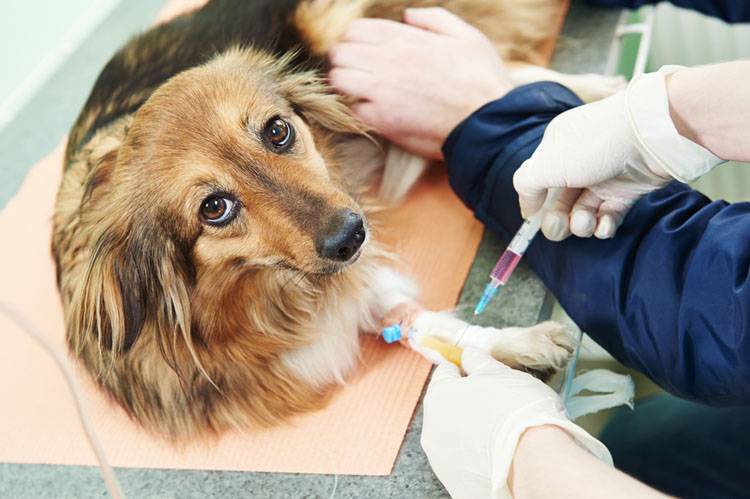Your Pet Can Become a Blood Donor
Giving blood to a veterinary patient can save a life just like in human medical emergencies. Critical care animals with clotting issues, cancer, anemia or other types of injury (e.g. internal bleeding) need blood or plasma. There are programs where pet owners can register their dog–and sometimes their cat–to become a blood donor. Some of these programs are volunteer-based, depending on where you live. Check with your veterinarian to receive a list of local animal blood banks near you. Keep in mind that while some blood banks utilize both dog and cat donors, many are dog-only banks.
Guidelines for a pet to become a blood donor include:
- They must be friendly and even tempered.
- They must be between the ages of one to six years old.
- They must be in good general health.
- They must be current on vaccines and heartworm preventive medication (if the area you live in is prevalent with heartworms).
- Females must be spayed and have never been pregnant.
- They must have never been a recipient of a blood transfusion.
- Cats must be indoor cats only and cannot have a heart murmur.
- They must be a large dog (over 50 pounds) or a large cat (over 10 pounds).
If your pet meets these requirements, an initial blood screening with a physical examination must be performed. You may have to commit your dog to donate six to eight times a year for dogs and four to six times a year for cats.
RELATED: 12 Symptoms You Shouldn’t Ignore in Your Dog
Blood Donation Process
Dog Blood Donation
The blood donation process usually lasts for 30 minutes. However, many veterinary hospitals require dogs to stay several hours afterwards to replenish their body with fluids. Sedation is usually not necessary, but it is required to fast your dog for 10 to 12 hours prior to donating.
Approximately 450 milliliters (16 ounces) of blood is taken. They use a catheter to blood from the pet and provide replacement fluids intravenously.
Cat Blood Donation
For cats, the area around their neck is shaved and surgically scrubbed in order for the veterinarian to obtain blood from their jugular vein. Cats are usually given a mild sedative to keep them calm. During an average cat blood donation, about 60 milliliters (2 ounces) of blood is taken and replacement fluids are given under the skin to hydrate them.
Being part of a blood donation program not only means you and your pet are saving lives, but your pet will also receive annual blood work, heartworm, Lyme disease and other screening tests for free. Most blood banks have some type of donor program along with membership requirements. Membership usually includes benefits, such as free blood products for the life of the donor and its housemates.
Sources:
www.petplace.com
www.cvm.umn.edu
You may also like: Is Pre-Surgical Blood Work Really Necessary?





